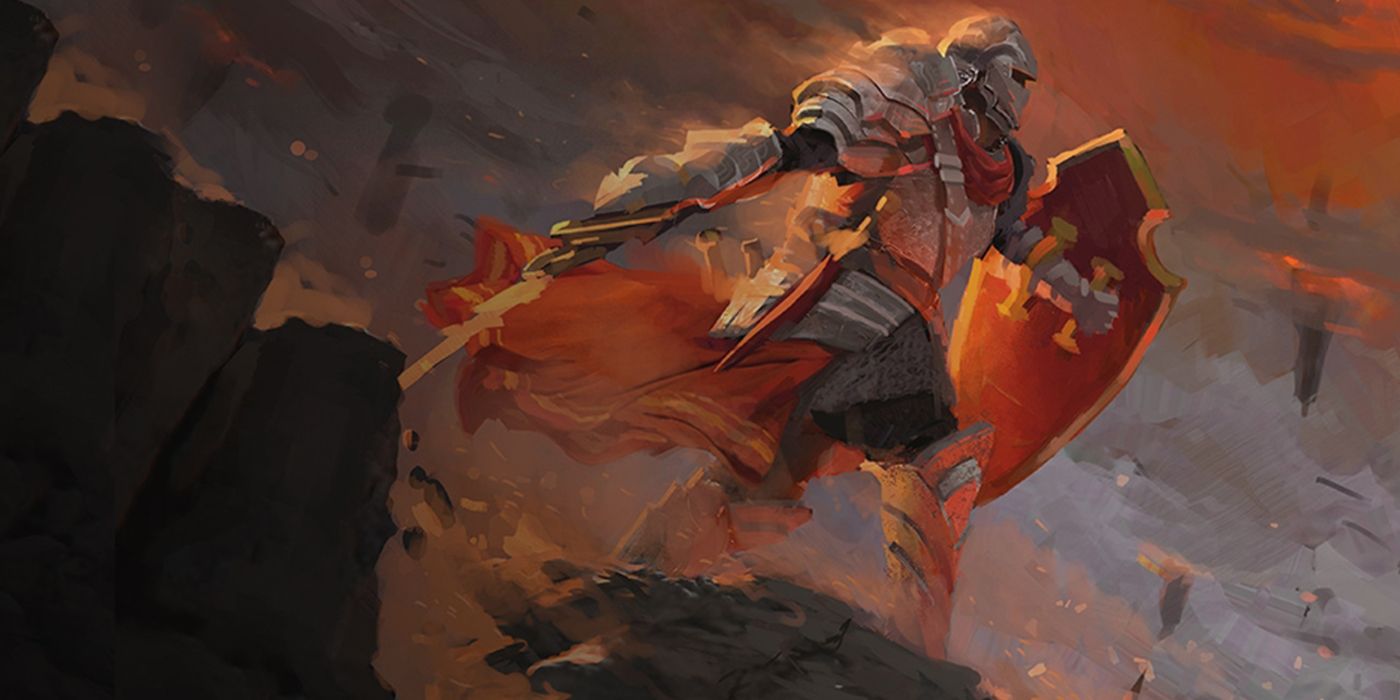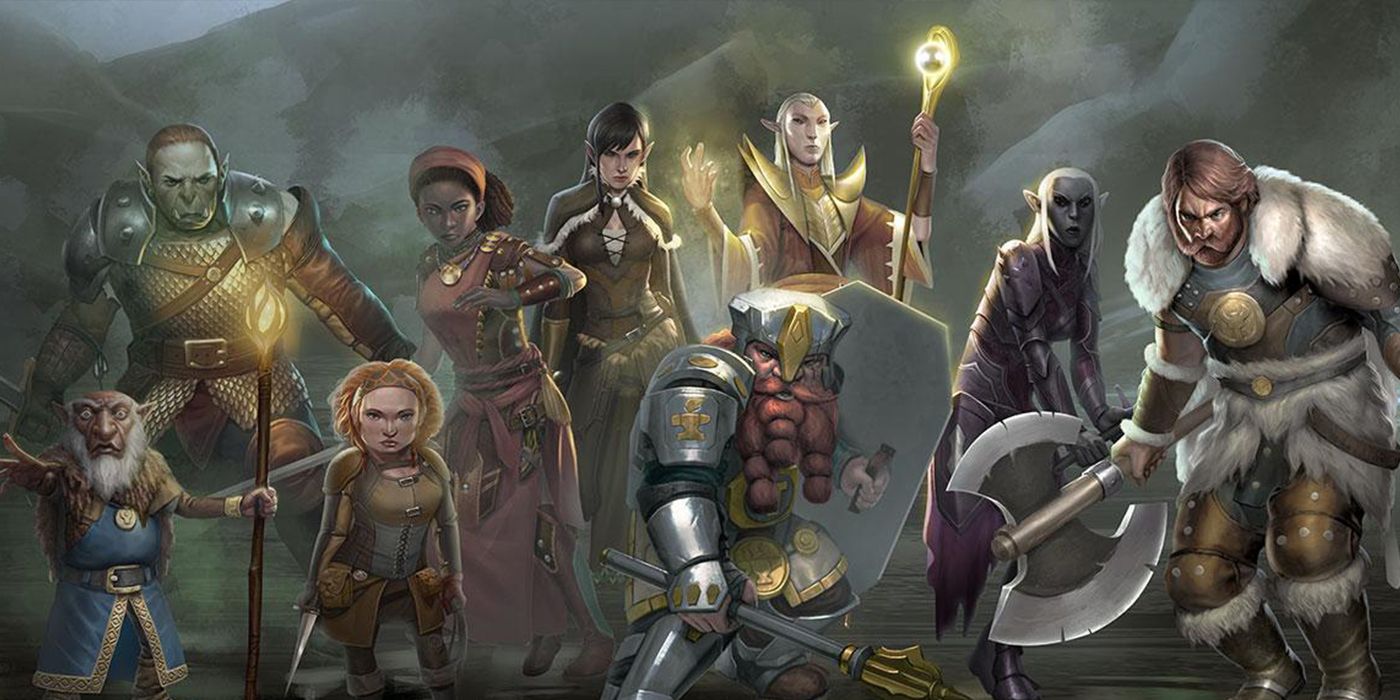Dungeons & Dragons 5e Best Cleric Builds | Game Rant

In Dungeons & Dragons 5e, the cleric is another one of those classes--much like fighters and wizards--that have been there since the beginning. Traditionally, clerics are a combination of spellcaster and weapons-user, and their spells are performed through the power of their own faith and patron deity.
However, there's a common assumption that clerics are just the party's healer, when in fact they're one of the most diverse classes in the whole of D&D 5e. Sure, clerics have access to the best healing spells in the game and definitely should be the party healer, but there's more to it than that. Depending on the build, clerics can end up with vastly different abilities which complement a range of play-style and roles in the party. All that remains is to decide on the type of cleric and build them, following a few guidelines to make sure that cleric is the best they can be.
When it comes to race, players will want to look for a race that boosts their wisdom stat--it's the most important ability score a cleric can have. As such, there are three races in the 5e basic rules that make for an amazing cleric: the hill dwarf (although any dwarf is pretty good), variant human, and the wood elf.
Hill dwarves probably win the prize for absolute best race suited to being a cleric, as they get a bonus to wisdom and constitution; the added durability is extremely helpful when the character has to wade into battle and heal party members. Wood elves get the same wisdom bonus and a +2 to their dexterity, and depending on the build, clerics can rely on either strength or dexterity for their combat prowess. Plus, it never hurts to be a cleric who can sneak. Variant humans make the list just as they'll make every other class list because they're so customizable, and with a range of feats, they can be anything.
For those who don't mind looking beyond the Player's Handbook, there are a couple of other options to consider: the firbolg and ghostwise halfling. Firbolgs get an awesome +2 wisdom and +1 strength, with some innate casting and handy abilities to go along with that. Ghostwise halflings stand out from their halfling cousins with a bonus to wisdom and dexterity--this would be another race that should be played with a dexterity build.

As ability scores go, a cleric's highest score needs to be their wisdom, as it's their spellcasting attribute; a number of other special cleric abilities rely on wisdom too. Once in-game, players should focus on getting that wisdom score as high as possible to maximize their cleric's power.
After that, the stats' importance can vary based on what type of build it is: the next two highest stats should be constitution and either strength or dexterity. Constitution is always going to be second or third-most important to clerics since it determines hit points--if the party healer goes down in a fight, that's a tough break for the party as a whole. Meanwhile, the players should select either strength or dexterity to be on par with constitution; strength for a cleric who wears heavy armor and gets more involved in combat, and dexterity for a lightly-armored cleric who focuses more on spellcasting.
Regardless, charisma and intelligence come in last as the least important abilities for a cleric to have. The only reason some players might want a little extra charisma is if their cleric will be a party Face, although if there's a bard, sorcerer, or some other charisma-based character in the party there's really no need. The only type of cleric who needs intelligence is one in the Knowledge domain; otherwise, this stat can be dumped.
The 5th edition cleric subclasses are divided into divine domains, each domain shaping the types of abilities that the cleric will pick up. There are a whopping eleven domains to choose from: the Arcana, Death, Forge, Grave, Knowledge, Life, Light, Nature, Order, Tempest, Trickery, and War domains.
Not to worry, though; players intimidated at the prospect of sorting through and weighing the pros and cons of each subclass can instead refer to this quick roundup of the best domains in the bunch. The Life and Forge domains are exceedingly powerful at what they're designed to do--for players looking to emphasize the healing aspect of their cleric, it doesn't get better than Life. This domain offers the highest bonuses to healing spells, making it easier for the cleric to get allies on their feet and keep them there in battle. Throw heavy armor in the mix, and Life clerics become just as hard to kill as the rest of their party.
For those wanting to play their cleric as more of a tank and defender in addition to a spellcaster, Forge is the way to go. The Forge cleric gets a fun spell list that also suits the subclass thematically, along with the ability to craft and augment gear. It's the closest players will get to being their own blacksmith, with the bonus of being absolutely invaluable to any party in combat.

When it comes to skills, the two that any cleric definitely needs are insight and religion. Both are wisdom-based, so they should naturally have a decent bonus, and with proficiency, a high insight will particularly come in handy for social interactions. Religion is a bit of a no-brainer since religious belief is the foundation of all a cleric's abilities.
There are several opportunities for picking a feat throughout any campaign, and for clerics, healer, lucky, resilient, and war caster are all great options to choose from. Healer is another fairly typical choice, but there's a reason for that: the feat makes a healer's kit basically the equivalent of a low-level healing spell, which is quite useful. Lucky is a feat that looks good on any character, with three free redos on a d20 roll, while resilient is one more thing to keep the cleric on their feat in battle. War caster is easily the most important feat here and the one clerics should consider taking first, and it improves the cleric's ability to maintain concentration on a spell in the middle of a fight.
The last thing to consider would be a suitable background, and there are a few backgrounds that provide good skills for a cleric beyond Acolyte, which is pretty much the default 'cleric' choice. Faction Agent, Outlander, and Sailor are all good options too, offering a few skills and choice of language. With that done, it's time to take the newly built cleric into the campaign--knowing they've got the best build possible, too.

Post a Comment